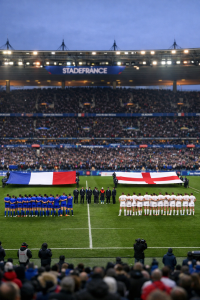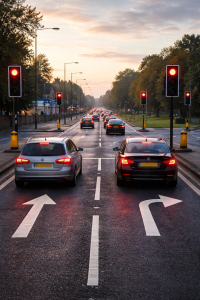Scroll for five minutes on any social platform and you’ll notice something odd. Nobody really lives a normal life anymore. Not online, anyway. Instead, you’re watching a play, a highlight reel, a performance where everyone’s wearing a carefully chosen mask. The newborn is swaddled in organic cotton and they are smiling for the camera, but the sleepless nights and cracked nipples are never mentioned.
The business team grins at their product launch photo, but the reality of three employees on antidepressants and a bank overdraft doesn’t make the feed.
Couples pose against sunsets in Santorini while their biggest conversation that week was about whether to buy dishwasher tablets in bulk.
Social media was meant to connect us, but what it’s really done is turn daily life into theatre. Every post is another costume change, another set piece in a show that no one quite admits is staged.
Psychologists have been onto this for decades. Leon Festinger wrote about social comparison theory back in the 1950s, long before hashtags and filters existed. We humans naturally compare ourselves to others, to check our place in the world. The trouble is, social media only offers the polished, filtered version. That skews the whole process. Instead of comparing yourself to the neighbour’s actual kitchen, you’re comparing yourself to the staged photo of it with the mess swept out of sight and a ten-pound candle burning in the background. The irony is that we all know this. We know the beach photo probably hides a blazing row about sunscreen. We know the “new business milestone” could be masking a string of failures. But we still scroll, and still we compare, then stress about how we don’t meet the grade.
Nowhere is this more obvious than on Facebook, or as it should honestly be renamed, MaskBook. It’s the global masquerade ball, where your school friends pretend their lives turned out just as planned, where couples in therapy post anniversary tributes filled with heart emojis, and where every family Christmas looks like the John Lewis advert, rosy cheeks, matching pyjamas, nobody drunk or sulking. If aliens landed tomorrow and judged humanity by MaskBook alone, they’d conclude that we are thriving, harmonious, permanently on holiday, and suspiciously obsessed with inspirational quotes written in curly fonts over pictures of beaches. The truth is, of course, grittier. Divorce papers, debt, affairs, breakdowns, loneliness, and the deep human need to be seen, just not as we really are.
Imagine the man who should be posting a photo of his bedroom with the caption “Day 7335 of sleeping alone.” It sounds like a quirky statistic until you do the maths. That’s twenty years of loneliness boiled down into a single thought. And if you were to scroll through his page, I’d bet it’s all sunshine and parties, carefully curated to hide the quiet ache behind the mask and yes that guy is real…
Then there’s the quiet drain of scrolling during work breaks. Someone sits at their desk, trying to sneak a few minutes of escape, and ends up scrolling through curated lives that seem endlessly vibrant and effortless. Every polished meal, perfect vacation, or triumphant business post reinforces the feeling that their own existence is dull, messy, or inadequate. Instead of a brief mental pause, it becomes a mirror reflecting everything they think is wrong with themselves, leaving them more exhausted, more insecure, and more convinced that they are somehow less worthy than everyone else.
Businesses aren’t much better. In fact, they’re often worse. Marketing teams are professional mask-makers. The smiling group photo on LinkedIn usually hides a company scrambling to meet payroll. The slick “our team is like family” slogan rarely matches the reality of quiet layoffs and burnout. Some corporations trumpet their commitment to sustainability while flying their products across the world by air freight. Start-ups post grinning founder selfies with hashtags about “disruption” while quietly emailing their investors to beg for one more round of funding. Everything is “look at me” content. Everything is spin. And the audience claps politely, even though they all suspect the backdrop might collapse at any moment.
Then there’s the obsession with children on social media. Parents proudly share every milestone, every bath, every tantrum, without pausing to think where those images might end up. Once an image is online, it can be copied, stolen, and misused. Law enforcement agencies warn repeatedly how predators collect and trade such content. And yet, the likes and the comments, “so cute,” “what a darling,” are apparently enough to override caution. One day those children will grow up and inherit a digital scrapbook of their lives, created not by them, but for the approval of strangers.
The cost of all this is rarely spoken about. The highlight reel becomes the standard, and real life looks shabby in comparison. People begin to live not for experience, but for the photo of the experience. The weekend hike isn’t finished until it’s posted. The restaurant meal isn’t eaten until it’s photographed from three angles. A child’s birthday isn’t real until there’s a grid post. Even grief gets packaged. We’ve all seen the carefully worded status about a death, accompanied by a filtered photo of the deceased smiling in better times. Some people genuinely want to honour and share their feelings. Others, consciously or not, are performing sadness in a way that fits the platform.
This creates a psychological problem. The bigger the gap between what we present and what we feel, the harder it becomes to stay mentally healthy. Psychologists call it cognitive dissonance. You feel one thing, you post another, and the gap creates strain. Keep it up long enough and the strain becomes anxiety, depression, burnout. We’re not built to live in two realities at once.
So what’s the alternative? Raw honesty. Not every detail, we don’t need to know the minute-by-minute transcript of your marriage counselling sessions or your business’s latest cash flow crisis, but enough to puncture the illusion. The cake you burnt. The deal that collapsed. The admission that life is messy, complicated, sometimes unbearably so. That kind of honesty builds trust. It makes other people feel human, not inadequate. It connects.
There is, of course, a risk. Oversharing can become another performance in itself. We’ve all seen people who treat trauma as clickbait. But between endless curated perfection and the raw detail of your therapy notes, there’s a wide middle ground where authenticity lives. A space where you can say, “This is me. Messy, flawed, real.”
Every post is a choice. Do you keep feeding the illusion, or do you share something that resonates? Do you hand your children’s lives over to strangers for likes, or do you protect their privacy? Do you add another mask to MaskBook, or do you dare to take one off?
The truth is, the world doesn’t need another staged sunset photo. It doesn’t need one more smoothie bowl presented like a Michelin-starred dish. What it needs is more people willing to admit they burnt the toast, argued with their partner, tripped over the dog, cried in the shower, felt lonely, failed, laughed at something stupid, and survived another day. That’s what resonates. That’s what lasts.
Because behind the filters and the hashtags, life isn’t perfect. It never was. And it never will be because that’s real and normal and the more we speak about this reality, the more we share our truth and help others.



